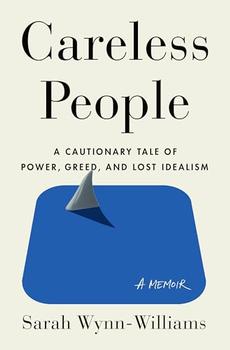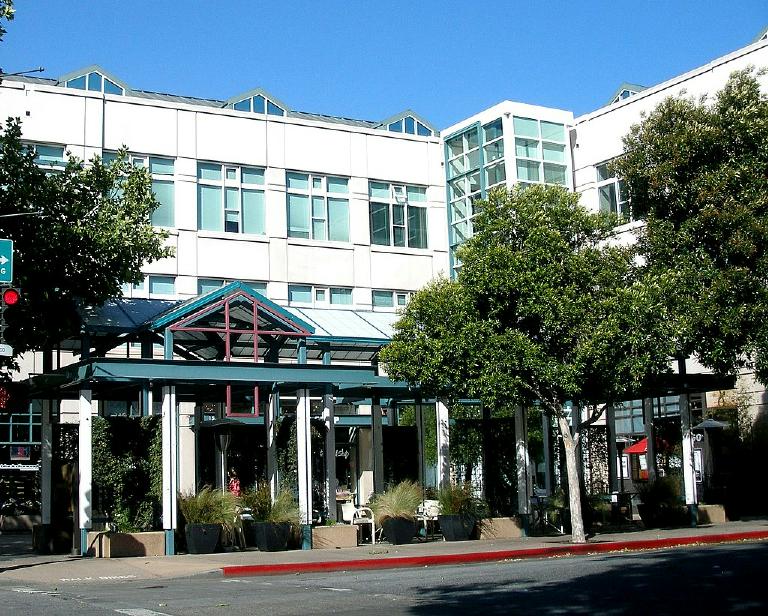Summary | Excerpt | Reviews | Beyond the Book | Read-Alikes | Genres & Themes | Author Bio

A Cautionary Tale of Power, Greed, and Lost Idealism
by Sarah Wynn-WilliamsThis article relates to Careless People
 Sarah Wynn-Williams' book, Careless People, details her experiences at Facebook from 2011 to 2017. The company had been around for seven years before her chronicle begins, however, and its earliest history is fascinating.
Sarah Wynn-Williams' book, Careless People, details her experiences at Facebook from 2011 to 2017. The company had been around for seven years before her chronicle begins, however, and its earliest history is fascinating.
Born May 14, 1984, Facebook's founder Mark Zuckerberg was a wunderkind. He displayed a talent for computer programming from an early age, encouraged by his father, Edward, who taught him Atari BASIC when he was around 10 years old. Mark outstripped his father's ability to instruct him within a few months, so his parents hired a software developer to tutor him—a move that quickly paid off. Edward, a dentist who ran his practice from his house, wanted a way to contact his receptionist without having to trudge downstairs, so 11-year-old Mark created an internal messaging app for him, which he named ZuckNet. In high school, he created Synapse, a program that learned users' music preferences and suggested similar content to them, much like the music service Pandora (which was launched in 2005, several years after Zuckerberg's creation). AOL and Microsoft offered to hire him and give him one million dollars to further develop Synapse, but he turned them down, deciding instead to study psychology at Harvard.
In 2003, during his sophomore year, Mark had the idea to create a website he called Facemash. It was a version of "Hot or Not," an offensive game in which people vote on whether or not a specific person is attractive. In Mark's version, the pictures of two female students were displayed side-by-side on the web page, and users who were logged in could select which of the two was the prettier one. Needless to say, it almost immediately garnered complaints, citing sexism and privacy concerns. The Harvard administration took the site offline two days later, but in that short period of time 450 people participated, casting 22,000 votes. It also turned out that Zuckerberg had hacked into the school's student database to obtain the pictures he used, which nearly got him expelled.
Undaunted, Mark continued to brainstorm other ideas with his roommates Eduardo Saverin, Dustin Moskovitz, and Chris Hughes. Mark was determined to create something that would connect Harvard's students together. The project started out as an online version of a book Harvard provided to incoming students, a sort of directory that would help them get to know each other better. They named this early effort TheFacebook and launched the site in early 2004.
TheFacebook was initially designed just for Harvard students, with the idea that users would post pictures of themselves along with a few bits of personal information, such as their class schedule or hobbies. The more students that participated, the more people would feel connected, forming a tighter community. Over a thousand students registered to be a part of this service within the first 24 hours, and half the student body were members within a month. Zuckerberg and his crew expanded access to other Ivy League schools, and by June 2004 they had 250,000 members from 34 schools. They also began attracting advertising revenue from big corporations, like Mastercard.
At the end of the school year, Zuckerberg, Moskovitz, and Hughes rented a small house in Palo Alto from which to run their burgeoning business. They had intended to return to Harvard at the end of summer to complete their degrees, but by that time TheFacebook had received so much advertising revenue that Zuckerberg and Moskovitz decided to remain in Palo Alto. Sean Parker, the creator of the file sharing program Napster, also joined the team that summer as Facebook's first president. Perhaps his most important contribution, though, was convincing PayPal's creator Peter Thiel to invest $500,000 in the new company.
The website, renamed just "Facebook" in early 2005, continued to roll out new features over the ensuing months, garnering more users and more advertisers. They gradually expanded their userbase, and by early 2006 had opened access to the website to anyone over the age of thirteen with a valid email address. By August 2009—a little more than five years after their launch—Facebook had over 10 million active daily users and over 1200 employees. A little more than a year later, it was the third largest company in the United States, behind only Google and Amazon.
Image courtesy of Coolcaesar, CC BY-SA 3.0
Filed under Medicine, Science and Tech
![]() This article relates to Careless People.
It first ran in the April 9, 2025
issue of BookBrowse Recommends.
This article relates to Careless People.
It first ran in the April 9, 2025
issue of BookBrowse Recommends.
Finishing second in the Olympics gets you silver. Finishing second in politics gets you oblivion.
Click Here to find out who said this, as well as discovering other famous literary quotes!
Your guide toexceptional books
BookBrowse seeks out and recommends the best in contemporary fiction and nonfiction—books that not only engage and entertain but also deepen our understanding of ourselves and the world around us.